Darebin Homemade Food & Wine Festival
This year’s Darebin Homemade Food & Wine Festival will be held between Saturday, 1st June and Saturday, 8th June.
Entries to the homemade beer, red wine (including rose), white wine, country/other wines, tomato passata, preserved olives and pickled vegetables competitions are all now open. Entrants must live, work, study or recreate in Darebin. Read more and enter.
Community gardening news
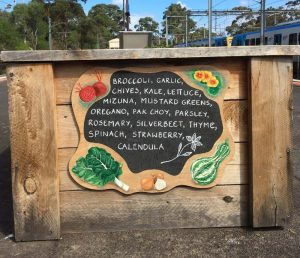 Incredible Edible Eltham has just done its main autumn plantings. As per the picture right, they write what is growing on a blackboard on the side of one of the raised beds at the railway station. Many thanks to Bulleen Art & Garden for donating all the seedlings.
Incredible Edible Eltham has just done its main autumn plantings. As per the picture right, they write what is growing on a blackboard on the side of one of the raised beds at the railway station. Many thanks to Bulleen Art & Garden for donating all the seedlings.
How many cauliflowers does one get?
Stephen Brennan writes in “With my broccoli and cauliflower, do I only get the one floret on each plant?”
My reply: re cauliflower, yes, you only get one cauliflower per plant. Re broccoli, there are different types of broccoli. With standard broccoli, you get one main head and then, later, maybe a few more, smaller side heads. With sprouting broccoli, you get multiple, small florets. With romanesco broccoli, you only get one head per plant.
Tomato growing – some reactions
In response to last week’s article about nurture vs neglect of tomato plants, Karen Sutherland writes in: “Interesting experiment, and these sorts of topics are covered in (my) growing section of the Tomato book. Smaller fruited growing plants are (generally) more resistant to disease and therefore more able to be grown in less than ideal conditions, including some shade. They are therefore more suitable for growing in ‘neglect’ gardens. Larger fruited tomatoes are generally more fussy, and are best grown in ideal conditions such as your ‘nurture’ bed. Good to have these types of examples such as yours to get people thinking more.”
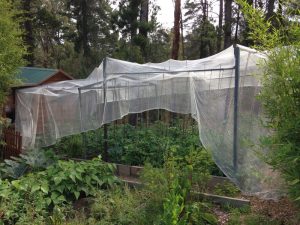 Eric Nuncio also writes in: “This year I’ve had my best tomato growing season ever and I’m still picking cherry tomatoes. I grew seven varieties from seed, from large tomatoes to cherry to roman. The green zebras were stunning. Last year the wildlife ate more tomatoes than me so this year I planted my 70 plants under netting. The feed was cow manure and a nitrogen tomato granule mix and each plant had a water dripper plus hand watering (where I tried not to water the actual leaves of the plants). The side shoots were trimmed off until the main stems reached the ceiling, with some of the plants reaching three metres. I don’t know the total yield but conservatively I think it was at least a kilo per plant (i.e. at least 70 Kg in total). I’ve now topped up my seed bank for next season and prepared my 2019/20 planting plan, part of which is to avoid the cherry tomatoes creating a ‘wall’ such that some of the plants behind them only receive filtered sunlight.”
Eric Nuncio also writes in: “This year I’ve had my best tomato growing season ever and I’m still picking cherry tomatoes. I grew seven varieties from seed, from large tomatoes to cherry to roman. The green zebras were stunning. Last year the wildlife ate more tomatoes than me so this year I planted my 70 plants under netting. The feed was cow manure and a nitrogen tomato granule mix and each plant had a water dripper plus hand watering (where I tried not to water the actual leaves of the plants). The side shoots were trimmed off until the main stems reached the ceiling, with some of the plants reaching three metres. I don’t know the total yield but conservatively I think it was at least a kilo per plant (i.e. at least 70 Kg in total). I’ve now topped up my seed bank for next season and prepared my 2019/20 planting plan, part of which is to avoid the cherry tomatoes creating a ‘wall’ such that some of the plants behind them only receive filtered sunlight.”
Some parts of Victoria get cold
Danny Brunskill writes in: “I live in Halls Gap in the Grampians. How can I protect my wicking beds from the water in the reservoir freezing?” If anyone can suggest anything, please email us.
How long are your bottle gourds?
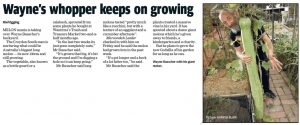 Whilst the 2019 tromboncino length competition is still underway (closing date of 29th April), it is worth noting that bottle gourds can also grow to a similar length. See the recent article in the Leader (picture right). Thanks for the heads up, Jenny Shaw.
Whilst the 2019 tromboncino length competition is still underway (closing date of 29th April), it is worth noting that bottle gourds can also grow to a similar length. See the recent article in the Leader (picture right). Thanks for the heads up, Jenny Shaw.
Can you grow grapes from seed?
Newsletter reader Angelo Eliades has just written an article about this. [Editor’s note: the answer is no!]
Read more of Angelo’s food growing articles.
Fun facts: cabbage
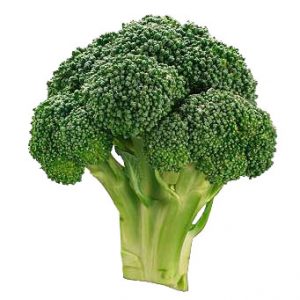
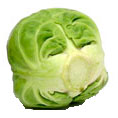
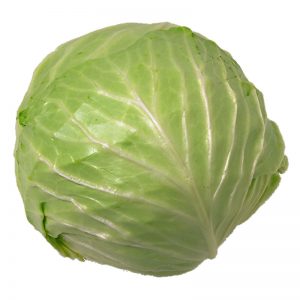
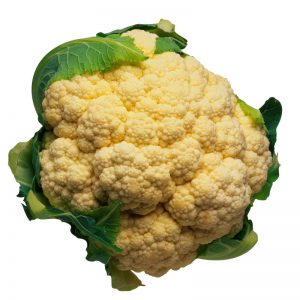
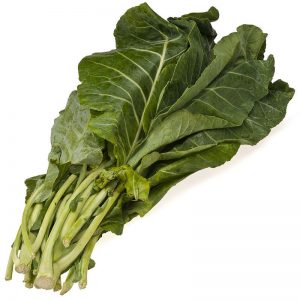
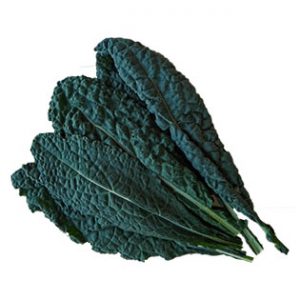
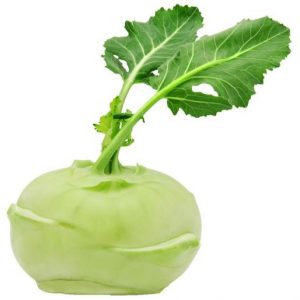
Why is Romanesco broccoli sometimes called Romanesco cauliflower (and vice versa)?
At one level, it is because some people think it tastes quite like broccoli whilst other people think it tastes quite like cauliflower. But, at a deeper level, it is because Romanesco can interbreed with both broccoli and cauliflower, producing fertile offspring, and thus it is the same species as both of them. (A ‘species’ being defined as the largest group of organisms in which the individuals can mate and can produce fertile offspring.)
But doesn’t that mean that broccoli and cauliflower are the same species?
Yes, Brassica oleracea.
As we are talking about broccoli and cauliflower, why does this discussion have the heading ‘cabbage’?
Because cabbage is also the same species(!), and the original wild plant from which they are all derived is called ‘wild cabbage’.
Does Brassica oleracea have any other vegetable forms?
Yes, Brussels sprouts, collard greens, kale and kohlrabi.
But some of these vegetables look completely different from each other!
That’s partly a matter of our perception because we eat different parts of the different vegetables. For kale and collard greens, we eat the leaves; for cabbage and Brussels sprouts, the leaf buds; for broccoli and cauliflower, the flower buds; and for kohlrabi, the stems. The parts that we don’t eat, and which therefore haven’t been manipulated by us over time, such as the flowers, look very similar.
How did all these vegetables come into existence?
Artificial selection by humans.
When did the all come into existence?
No one really knows because it was so long ago. According to Wikipedia, kale came first (5th century BC), then cabbage and kohlrabi (1st century AD), then cauliflower (15th century AD), then broccoli (16th century AD), and then Brussels sprouts (18th century AD).
This proliferation of types of Brassica oleracea still goes on. For example, ‘broccolini’ was created in 1993 by a Japanese seed company.
Which link was clicked most times in the last newsletter?
Where the Eltham Farmers’ Market stallholders are from.
Joke of the week
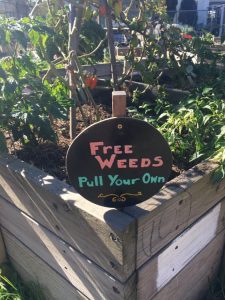 If Robyn has 30 chocolate bars and eats 25, what does she have? Diabetes.
If Robyn has 30 chocolate bars and eats 25, what does she have? Diabetes.
And as a bonus, see the picture right (courtesy of Bellfield Community Garden).
New events – not cooking
Heritage apple tasting: Sunday, 28th April, 3-5pm; Petty’s Orchard, Templestowe.
What: Sample the seasonal flavours of the heritage apple collection at an apple tasting afternoon at 5pm. Around 15 varieties will be available for tasting. An orchard tour is included.
Cost: $15.
Bookings: their website.
Cacao, cocoa and chocolate: Thursday, 9th May, 6.30-7.30pm; Eastland, Ringwood.
What: What you will learn: the process of bean to bar chocolate making. Where does chocolate come from? How is it made?; what makes fine couverture so special; and various flavour characteristics in single origin chocolates sourced from around the world. What you will get: 20 varieties of chocolate to taste and a box of your favourite chocolate to take home. You will taste chocolate made with cacao beans grown in countries such as Ecuador, Peru, Venezuela, Madagascar, Bolivia, Dominican Republic, Vietnam and even Australia. You will look at the process of turning cocoa beans into chocolate.
Cost: $38.
Bookings: WeTeachMe.
Permablitz guild social night featuring Charlie Mgee: Thursday, 9th May, 7-10pm; Northcote.
What: Permablitz Melbourne wants to get everyone together and say thanks because, without you, permablitzes simply wouldn’t happen. Join them for a night of conversation, games, music, permie discussions, music, laughter and music. Charlie Mgee, of Formidable Vegetable Sound System, will play for you on the night. Pip Magazine and Melliodora Publishing have provided a handful of prizes which will be offered through the evening.
Cost: $10.
Edible weeds: Saturday, 11th May, 10am-midday; CERES.
What: What you will learn: how to identify edible weeds; and how do use them in your everyday life. Presenter: Monique Miller. Learn about seasonal edible weeds that thrive in Melbourne inner north, and gain knowledge about the plants’ culinary, medicinal and ecological uses.
Cost: $40.
Bookings: WeTeachMe.
Edible winter gardening: Saturday, 18th May, 2-3pm; Watsonia Library.
What: Robin Gale-Baker will discuss how you can look after your winter vegetables and give tips on how to give your fruit trees a winter prune.
Cost: free.
Bookings: their website.
Olives to oil harvesting party: Saturday, 25th May, 2-4.30pm; Hawthorn.
What: People will be coming together to harvest unwanted olives from Melbourne backyards and street trees to be pressed into local olive oil to take home for free. Go along to this event either to drop off some olives you’ve already picked or to join their ‘harvesting party’. They will send you out with a map and harvesting equipment to go and pick local olive trees. The olives that you pick will then be pressed into olive oil which is free for you to collect the following weekend.
Cost: free.
Bookings: EventBrite.
Winter fruit tree maintenance: Saturday, 1st June, 9.30am-12.30pm; Bulleen Art and Garden.
What: What you will learn: pruning – formative and maintenance of new and established fruit trees. Also, selection and planting of new fruit trees; winter fruit tree maintenance practices for pest and disease prevention, control and treatment; and pruning tool maintenance. Presented by Angelo Eliades. Learn all of the pruning techniques and needs of individual fruit trees from apples and plums to persimmons and pomegranates. And hear about what not to do. Discover how to reduce and prevent pest and diseases that compromise your fruit production. Learn how to treat problems with different methods – organic/permaculture and conventional. They will also cover buying new fruit trees and will demonstrate how to clean and sharpen your pruning tools and other edged garden tools (spades etc).
Cost: $50.
Bookings: WeTeachMe.
Gardening master class with Melissa King: Sunday, 2nd June, 2-5pm; Box Hill Town Hall.
What: Melissa King will inspire you to grow a whole range of heirloom vegetables. Then, at 3.20pm, AB Bishop will talk about her book Habitat: A practical guide to creating a wildlife-friendly Australian garden. Then, at 4pm, Duncan Cocking, from Leaf, Root & Fruit Gardening Services will show you how to develop a low maintenance backyard orchard.
Cost: free.
Bookings: EventBrite.
Edible weeds walk: 3 occurrences on Tuesday, 4th June, at 10am-midday, 1-3pm, and 3.45-5.45pm; Blackburn South.
What: What if many of the weeds in our garden were just as edible as the vegetables we tend beside them? What if some of these free, all-too-easy-to-grow uninvited guests were so nutritionally dense that they are just about the healthiest things you could possibly eat? What if many of them also had medical traditions dating back centuries? Well it’s all true! And if you know what to choose, they also taste great. Join Adam Grubb, co-author of The Weed Forager’s Handbook, for a fascinating walk on the wild side, foraging for edible weeds.
Cost: free.
Bookings: EventBrite.
Mediterranean diet: Tuesday, 11th June, 7-8.30pm; Hawthorn Community House.
What: The Mediterranean diet is considered one of the world’s healthiest diet with its abundance of fresh fruits, vegetables, nuts, legumes, olive oil, yogurt, goats’ cheese, fish, poultry and small portions of meat. This workshop will provide you with a background on the diet and its health benefits, affordable ways of shopping, and cooking delicious meals that are also easy to prepare.
Cost: $25.
Bookings: TryBooking.
Edible native plants for your garden: Thursday, 13th June, 7-8pm; Nunawading library.
What: Facilitated by Julie Weatherhead. Find inspiration to create your own native food kitchen garden and experience the unique culinary flavours of Australia’s native food plants. Julie will provide practical advice for growing, harvesting and using Australian native plants in the garden and kitchen, whilst exploring Australia’s lost opportunities to appreciate the wealth of traditional knowledge in relation to the uses of its native plants.
Cost: free.
Bookings: EventBrite.
Native plants for food and medicine: Saturday, 15th June, 9.30am-12.30pm; Bulleen Art and Garden.
What: What you will learn: traditional Indigenous lifestyles and healing practices pre European settlement; traditional ways of using various Indigenous plants for medicinal purposes; and promising new research into their potential medical applications. Presented by Gaby Harris. Indigenous Australians have been using native plants and animals for tens of thousands of years as sources of food and medicine. With European settlement much of this knowledge was lost or ignored, but there is now growing interest in relearning these traditional healing methods. More research is being carried out to see how we can grow, harvest and utilise our Indigenous plants for foods, medicines, cosmetics and more. This class will introduce you to some of the well-known, as well as some more obscure, Indigenous Australian plants, teach you how they were once used, and how you can use them now. You will be able to see, smell and taste a variety of these amazing plants and learn where you can find them and how to cook with them.
Cost: $55.
Bookings: WeTeachMe.
New events – cooking
Food preserving – Urban Pear: Thursday, 2nd May, 10am-midday; Whittlesea Library.
What: Urban Pear will show you various types of food preserving, including jams, chutneys, relishes and fermented products.
Cost: free.
Bookings: their website.
Gluten free FODMAP (thermomix): Tuesday, 4th June, 3.45-5.45pm; Kilsyth.
What: Learn how to make your delicate high tea items in your thermomix. Sip away on a cup of tea and taste all their recipes whilst they show you how to create them at home. They will demonstrate at least 6 different types.
Cost: $21.
Bookings: EventBrite.
Cooking master class – ‘high tea inspired’: Thursday, 6th June, 7-9pm; Gourmet Living, Templestowe.
What: Tomato tartlets, smoked chicken sandwiches, ham sandwiches, passionfruit curd tarts, vanilla scones and frangelico choc mousse.
Cost: $70.
Bookings: EventBrite.
Cooking seasonal produce with Julie French: Saturday, 8th June, 11.30am-12.30pm; Diamond Valley Library.
What: Join Julie French as she shows you how to best use the produce in your garden to reduce food waste, save money and enjoy the tasty food that she prepares in the library’s kitchen garden.
Cost: free.
Bookings: their website.
Summary of upcoming events – not cooking
Over the next week
- Retro Suburbia Group: Wednesday, 17th April, 6.30-8.30pm; Lalor Library.
- Beeswax wraps: Thursday, 18th April, 11am-midday; Diamond Valley Library.
- All about tomatoes: Tuesday, 23rd April, 8-10pm; Ivanhoe Garden Club.
- Beginners compost, worm farm and bokashi: Wednesday, 24th April, 10-11.30am; Central Ringwood Community Centre.
Over the next month
- Edible weeds walk: Saturday, 27th April, 11am-1pm; Brunswick East.
- Hops master class: Saturday, 27th April, 12.30-2.30pm; 3 Ravens Brewery, Thornbury.
- Edible weeds walk: Saturday, 27th April, 2-4pm; Brunswick East.
- Heritage apple tasting: Sunday, 28th April, 3-5pm; Petty’s Orchard, Templestowe.
- Make sense of food labels: Monday, 29th April, 9.30-11.30am; Eltham.
- Beekeeping basics: Monday, 29th April, 7-8.15pm; Ivanhoe Library.
- Creating retrosuburbia in your garden: Tuesday, 30th April, 6-8pm; Ivanhoe Library.
- Tomato troubleshooting – grow better tomatoes: Tuesday, 30th April, 7-8pm; Coburg Library.
- Pruning fruit trees with Karen from Edible Eden part two: Wednesday, 1st May, 6.30-9pm; Forest Hill.
- Introduction to horticulture – 9 session course: every Saturday for 9 weeks, starting 4th May, 9.30am-3pm; Edendale.
- Recycling your food waste at home: Saturday, 4th May, 10am-midday; Kew Library.
- Growing food in small spaces: Saturday, 4th May, 10.30-11.30am; Fitzroy.
- Kellybrook Cider Festival: Saturday, 4th May, 11am-5pm; Kellybrook Winery, Wonga Park.
- Intro to gardening workshops with DIVRS: Saturday, 4th May, 1.30-3pm; Preston.
- Home composting workshop: Saturday, 4th May, 2-4.30pm; Edendale.
- Organic backyard chook keeping with Jessamy Miller: Sunday, 5th May, 10-11.30am; Northcote.
- Make your own beeswax wraps with Emma Grace: Sunday, 5th May, 10am-2pm; CERES, Brunswick East.
- Kalorama Chestnut Festival: Sunday, 5th May, 10am-4pm; Kalorama Memorial Reserve.
- Kellybrook Cider Festival: Sunday, 5th May, 11am-5pm; Kellybrook Winery, Wonga Park.
- Backyard bees 101 workshop: Sunday, 5th May, 1-2.30pm; Preston.
- Monique’s rental abundance garden: Sunday, 5th May, 3-4pm; Northcote.
- Lakeside Good Earth Group – seed library launch and beeswax wraps: Tuesday, 7th May, 2-3.30pm; Lilydale Library.
- Paul Gale-Baker on wicking beds: Tuesday, 7th May, 7.15-9.15pm; Hurstbridge.
- How is chocolate made?: Wednesday, 8th May, 7-8pm; Coburg Library.
- French ornamental vegetable gardens: Wednesday, 8th May, 7.30-10pm; Doncaster Garden Club.
- Home composting and worm farming: Thursday, 9th May, 10.30am-midday; Thomastown Library.
- Cacao, cocoa and chocolate: Thursday, 9th May, 6.30-7.30pm; Eastland, Ringwood.
- Native edibles for companion planting: Thursday, 9th May, 6.30-9pm; Bulleen Art and Garden.
- Permablitz guild social night featuring Charlie Mgee: Thursday, 9th May, 7-10pm; Northcote.
- Retrosuburbia book club: Thursday, 9th May, 7.30-9pm; Central Ringwood Community Centre.
- Damian’s biodiverse permaculture garden (garden tour): Saturday, 11th May, 10-11am; Reservoir.
- Edible weeds: Saturday, 11th May, 10am-midday; CERES.
- Home brewing with Paul Rigby: Saturday, 11th May, 10am-3pm; CERES, Brunswick East.
- Big Vegan Market: Saturday, 11th May, 10am-6pm; Royal Exhibition Building, Carlton.
- Lee’s generous sharing garden (garden tour): Saturday, 11th May, 11.30am-12.30pm; Reservoir.
- Green at Kathleen – preparing for winter harvest: Saturday, 11th May, 11.30am-1pm; Kathleen Syme Library.
- Sharing homegrown food with Luigi and Emanuela (garden tour): Saturday, 11th May, 1-2pm; Reservoir.
- Productive gardening with kids workshop at Poppy’s Patch: Saturday, 11th May, 2.30-4pm; Reservoir.
- Backyard quails workshop: Sunday, 12th May, 10-11am; Northcote.
- Big Vegan Market: Saturday, 12th May, 10am-6pm; Royal Exhibition Building, Carlton.
- Natural pest management workshop: Sunday, 12th May, 11.30am-12.30pm; Northcote.
- Guided tour of the Plummery (garden tour): Sunday, 12th May, 12.45-1.45pm; Northcote.
- Robbie’s aquaponics garden (garden tour): Sunday, 12th May, 3-4pm; Thornbury.
Summary of upcoming events – cooking
Over the next week
- Make your own smash Easter egg: Wednesday, 17th April, 10.30-11.30am; Eastland, Ringwood.
- Flavorful Health cooking class: Wednesday, 17th April, 11am-1pm; Eltham.
- Toastie press sesh – kitchen hacks and tasty tips: Wednesday, 17th April, 6-9pm; Kathleen Syme Library, Carlton.
- Ganache and truffles – let’s play!: Thursday, 18th April, 6.30-7.30pm; Eastland, Ringwood.
- Flavorful Health cooking class: Sunday, 21st April, 11am-1pm; Eltham.
- Vegan brunch cooking class: Monday, 22nd April, midday-4pm; The Beet Retreat, Smiths Gully.
- Cooking for all abilities (10 sessions): Tuesdays from 23rd April to 25th June (10 weeks), 10am-12.30pm; Thornbury.
- Flavorful Health cooking class: Wednesday, 24th April, 11am-1pm; Eltham.
Over the next month
- Vegan brunch cooking class: Thursday, 25th April, midday-4pm; The Beet Retreat, Smiths Gully.
- Cook Indian by the creek: Friday, 26th April, 6-7.45pm; Diamond Creek.
- Preserving workshop: Saturday, 27th April, 2-4.30pm; Central Ringwood Community Centre.
- Gluten free, grain free and wheat free workshop (thermomix): Saturday, 27th April, 2-4pm; Chirnside Park.
- Flavorful Health cooking class: Sunday, 28th April, 11am-1pm; Eltham.
- Cooking for healthy minds (8 sessions): Tuesdays from 30th April to 18th June (8 weeks), 1.30-3.30pm; Thornbury.
- Flavorful Health cooking class: Wednesday, 1st May, 11am-1pm; Eltham.
- Cookie cake and fondant cookies with Emelia Jackson: Wednesday, 1st May, 7-9pm; Gourmet Living, Templestowe.
- Food preserving – Urban Pear: Thursday, 2nd May, 10am-midday; Whittlesea Library.
- Cook Indian by the creek: Friday, 3rd May, 6-7.30pm; Diamond Creek.
- No Waste Cook Club: Saturday, 4th May, 10am-midday; North Fitzroy Library.
- Sourdough bread making workshop: Saturday, 4th May, 10am-1pm; Living & Learning Panton Hill.
- Mexican – delicious everyday meals: Saturday, 4th May, 10.30am-1pm; Diamond Creek.
- Flavorful Health cooking class: Sunday, 5th May, 11am-1pm; Eltham.
- Miso paste making: Sunday, 5th May, 11am-1.30pm; Preston.
- Early Mother’s Day high tea (thermomix): Sunday, 5th May, 4-5.30pm; Kilsyth.
- Flavorful Health cooking class: Wednesday, 8th May, 11am-1pm; Eltham.
- Cooking master class – ‘taste of Tuscany’: Thursday, 9th May, 7-9pm; Gourmet Living, Templestowe.
- Cook Indian by the creek: Friday, 10th May, 6-7.30pm; Diamond Creek.
- Seasonal ferments – kimchi + kombucha: Saturday, 11th May, 9-11.30am; Bee Sustainable, Brunswick East.
- Nuka zuke – rice bran pickling: Saturday, 11th May, 11am-1pm; Preston.
- Thai inspired vegan cooking class: Sunday, 12th May, midday-4pm; The Beet Retreat, Smiths Gully.
